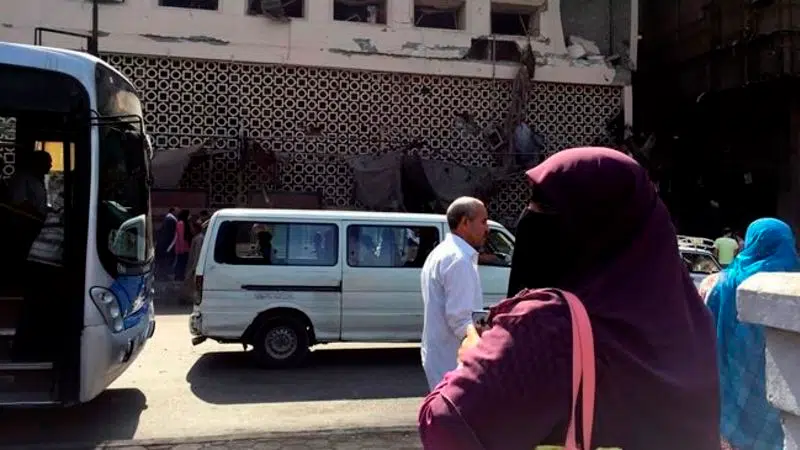
Car bomb collides with vehicles in Egypt capital, killing 20
CAIRO — A car packed with explosives being driven to carry out an attack collided with other vehicles and exploded in central Cairo, killing at least 20 people, the Interior Ministry said Monday, the deadliest attack in the Egyptian capital in over two years.
The blast went off Sunday night on the busy Corniche boulevard along the Nile River, setting other cars on fire and injuring at least 47. It damaged Egypt’s main cancer hospital nearby, shattering parts of the facade and some rooms inside, forcing the evacuation of dozens of patients.
Authorities had initially said the explosion was caused by a multi-vehicle accident. But later Monday, the Interior Ministry acknowledged that a car bomb was involved.
It accused a militant group known as Hasm, which has links to the outlawed Muslim Brotherhood, saying it was moving the car to carry out an attack elsewhere. The ministry did not say what the intended target was. The car had been stolen months earlier in the Nile Delta, it said.
